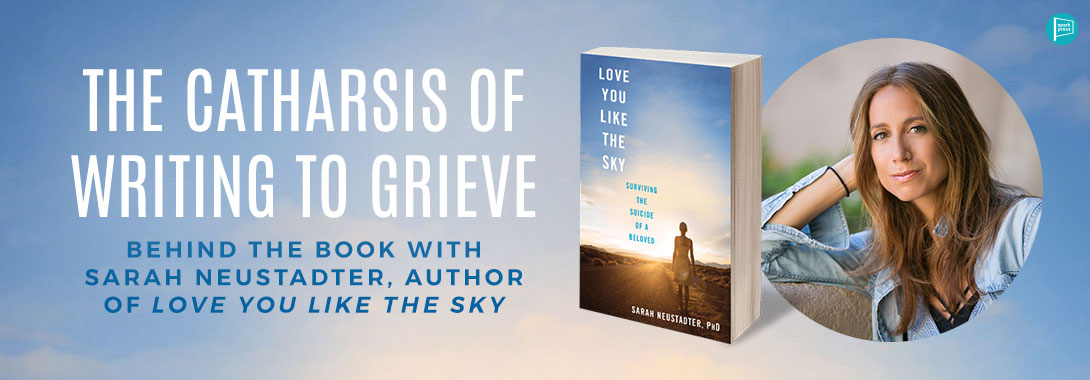
Ten years ago, my graduate school sweetheart, John, took his life violently by putting himself in front of a train. His death was shocking and traumatic, leaving me in territory so unknown, that friends, family, and even therapists couldn’t help me navigate.
Being as I’ve always written to express myself and formulate thoughts, I welcomed the act of writing emails to my deceased beloved with the intention of compiling them into a book. I didn’t set out to write my book to grieve or heal, but writing through this loss naturally lent itself to the grieving process.
Initially, I began writing to John as a way to make sense of his shocking suicide and to play detective to what had happened to him and to us. I wrote to connect the dots of what I hadn’t seen in front of me as I was living it. I was also scared that if I didn’t write everything down while it was fresh, I would eventually forget it all as time went on. The idea of one day forgetting him and the sweet times we shared together —sitting in class together for hours each day at our psychology grad school program or time spent fishing in rural Texas and Oklahoma—was unbearable. I needed to document all our memories, like a photo album, for my older years.
I also wrote in the hopes of helping other young women who were effectively widowed by a traumatic death such as suicide. Furthermore, I needed to write the book that I couldn’t find when I was in the throes of my loss. It was my way of making meaning of this kind of confounding and devastating life event. Writing a book in service of others like myself gave me some meaning, and making meaning out of loss has been proven an effective way to help mourn.
The process of writing was not easy, and grieving never is. Each time I sat down to write, I was terrified of what I might feel. Voluntarily going back into the past and reliving moments of beauty, moments of ordinariness, and then moments of crisis all had the same effect. They made me cry and they made me sad. It was hard work, and took a steely amount of discipline to keep at the manuscript day in and day out for years. But what else was I going to with my time? I was constantly thinking about him and mourning his death uncontrollably anyways, so I might as well use the act of writing to put some focus, organization, and structure to all that energy and all those memories, thoughts, and feelings. Writing became a grieving ritual, and ultimately, rituals are meant to bring transformation and wholeness.
Writing as an embodied practice becomes a visceral form of time travel—engaging the mind and bringing moments from the past back to life. The process of remembering is a healthy and necessary part of grief—as each memory, even the smallest flickers of an image, is mourned, it expedites the healing process. The deeper you go, the more complete the healing.
I learned that when it comes to grief, there’s no such thing as too much crying. As uncomfortable as all those tears feel, I came to discover that the more we cry, the more we heal. And so each writing session was an opportunity to grieve another layer of my loss and to release another layer of emotion, guiding me back to some new version of myself that was emerging.
I want to say that writing my story was cathartic, but the catharsis came in small ways gradually over the course of years. Just putting the memories and my process down on paper was a miraculous exercise, shaping my capacity to sit with my own pain without avoiding any of it. I held my little pocket flashlight and shined it on all the demons of my own personal hell: my suicidal longings and existential despair; dislocation from life; confusion; terror; abandonment; rage; helplessness; and bottomless sadness. By showing up each day to the page and doing my due diligence to understanding John’s life while honoring my own pain, I developed the musculature of strength and resilience. Writing and simply being with the pain helped piece me back together. I learned who I am and what I’m made of. And if I can survive my beloved’s suicide, I know I can survive anything.

Leave A Comment